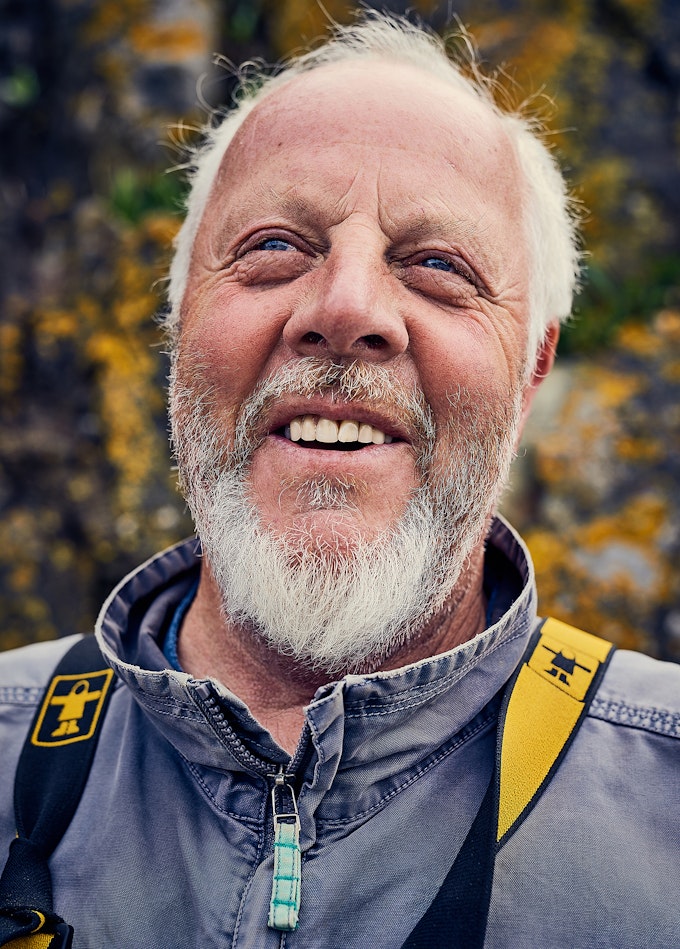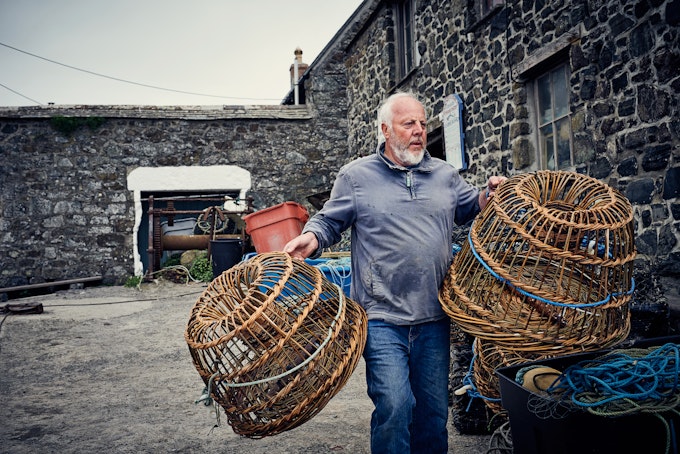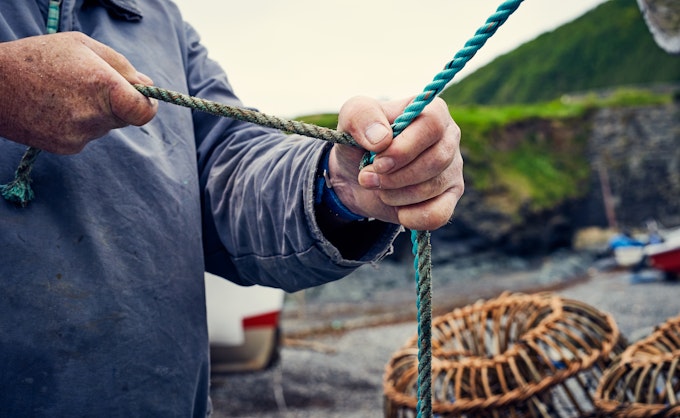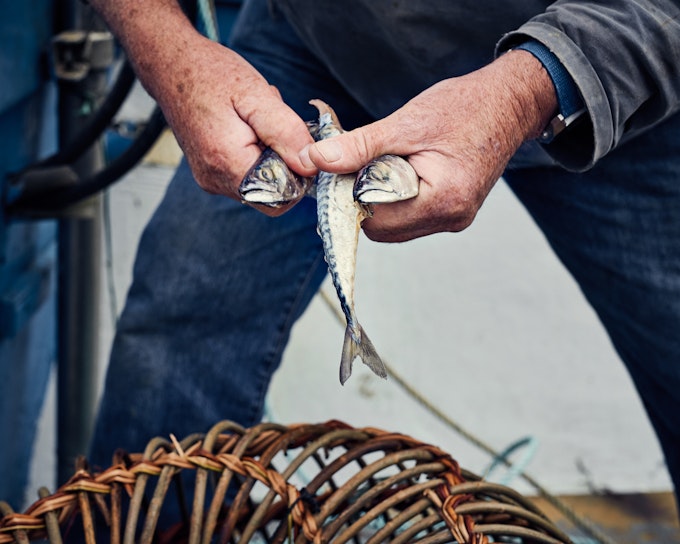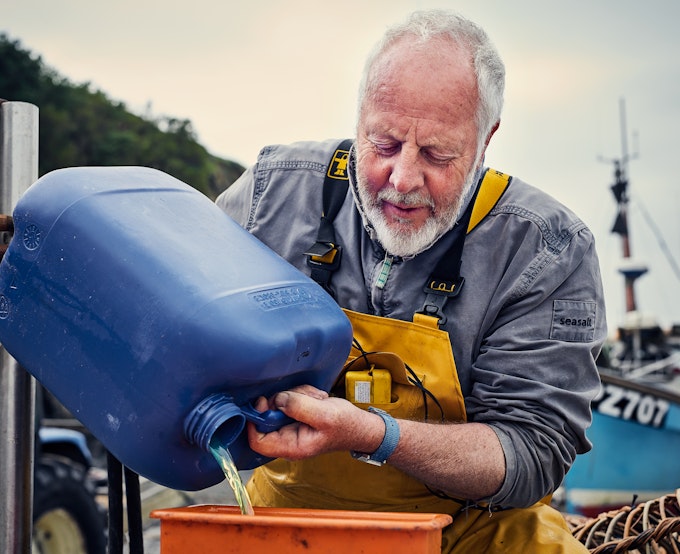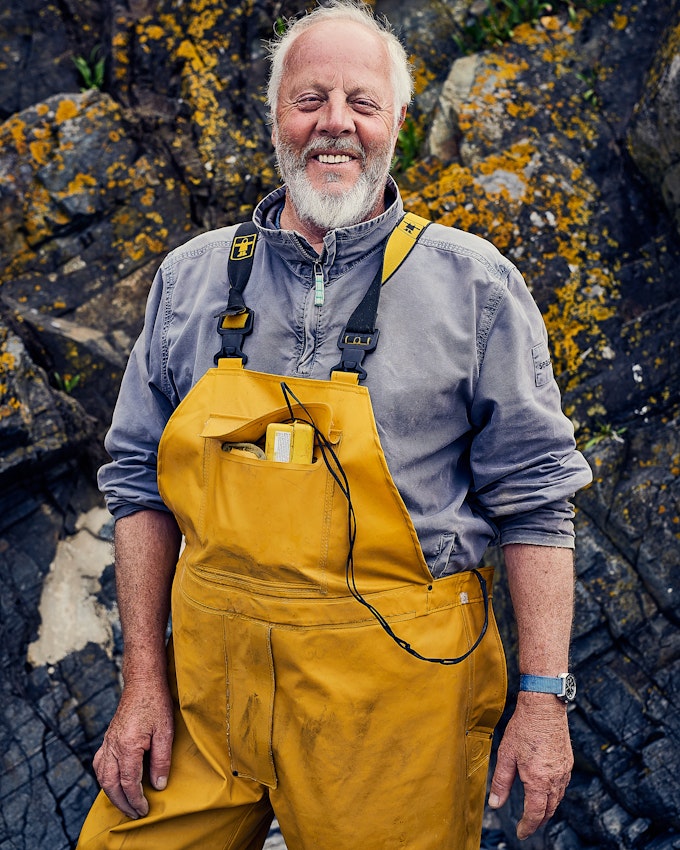How One Lobster Pot Maker in the UK is Keeping Old Traditions Alive
"What's so interesting about an old fisherman?" he asked. I smiled and laughed, you have stories and not everyone has stories to tell.
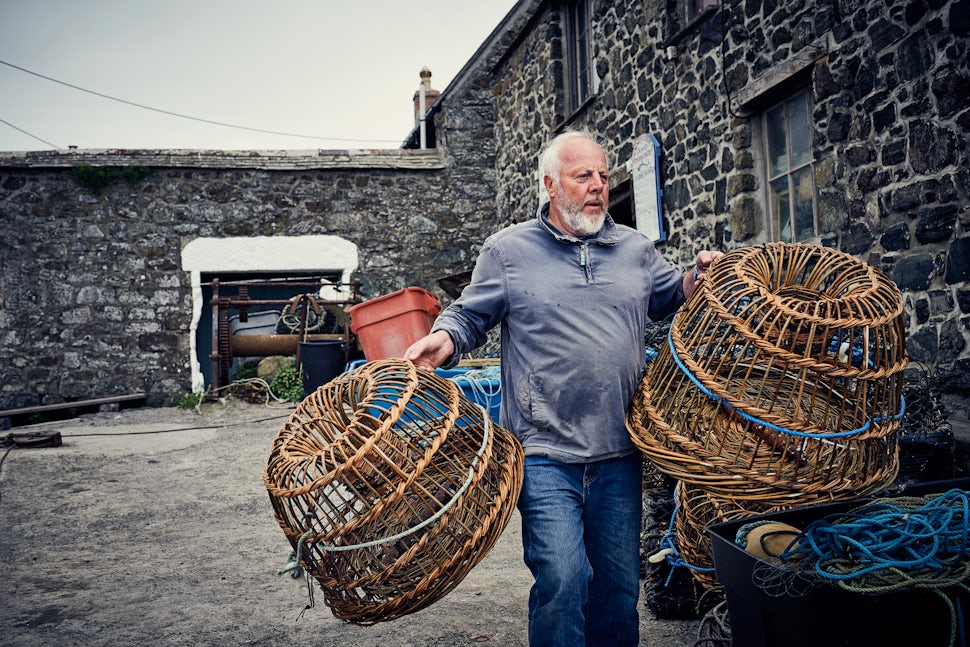
Going exploring on your own in a foreign land is by far one of the most rewarding experiences you can do as a traveller. Equally rewarding is engaging with the locals and immersing yourself in their lives and culture. It could be just for a few hours of a day, that little window can open your mind to so much. It is one of my favourite ways to get to know a place. I actively seek out characters who will help me do this. One such character was Nigel Legge, a retired skipper, artist, and lobster-pot maker. Nigel has known the sea all his life. Born into a family of fishermen Nigel left school when he was 15 and joined the merchant navy to quench his thirst for adventure and travel. After a few years he had saved enough money to buy his father’s fishing boat, it was from that point forward he became a "Lobsterman".
When he was a boy, making lobster pots was an essential skill that every fisherman needed to know. However once modern plastic and steel pots were invented, the craft of weaving lobster pots vanished overnight. A woven pot will last 1 season whereas a modern pot could last for 10-12 seasons, not to mention the convenience of not having to spend days making 1 pot on top of your other duties as a fisherman. As a result of that, 20 years had passed without Nigel weaving a single pot. It was only until someone had asked him to make one as a decoration for their home that he saw the opportunity to create a niche market for a lost skill.
He is one of the few people in Cornwall and the UK who still makes these woven pots. Nigel's clientele are tv shows like the recent BBC production of Poldark, feature films, high end home design boutiques, and private collectors. Sourcing the willow from Somerset, it takes Nigel 3 days to weave a single pot. A painstaking task he used to despise growing up, now provides a steady source of income during the winter when he is able to produce about 200 pots. Traditionally it was a skill passed on from father to son but most of the younger generation of fishermen are indifferent to it. It is a shame since it can provide an excellent way to generate extra income during the winter when fishing can be less reliable.
When I ran into Nigel, he was preparing to go out and drop 20 of his hand-woven pots to sea, baiting the pots and tying them together in a long daisy chain. Although officially "retired" from commercial fishing, this old sea dog still goes out everyday weather permitting. He catches just enough lobster to supply his daughters restaurant, sell a few locally, and on occasion take tourists out on his little boat, the "Razorbill"; giving them a taste of old-school lobstering.
Nigel moves at speed, tearing the bait apart, tying the knots to connect the chain of pots together, and moving on to the next trap. In just under twenty-five minutes, his boat is filled with pots and he's ready to go. He is full of vim and vigour, belying his 66 years. Although his daughters chose to pursue careers outside fishing, Nigel still has hopes that his family legacy will continue with one of his five grand children.
In addition to being a fisherman and lobster pot maker, Nigel is an accomplished artist. Specializing in nautical themed oil paintings on canvas and tin cans, he has twice exhibited in London to much acclaim. These days he sells his art directly to his clients then makes the 4 hour drive to London galleries. If his retirement was not busy enough, Nigel also dabbles in film and television. He looks exactly like you would picture a fisherman from a Hemingway novel, a fact not lost on casting directors who cast him in the Fisherman's Apprentice in 2012.
As he was getting ready to push off from the beach. I asked Nigel to stand for a portrait and thanked him for allowing me to spend the hour with him as he worked. He chuckled and thought me mad, "What's so interesting about an old fisherman?" he asked. I smiled and laughed, you have stories and not everyone has stories to tell.
We want to acknowledge and thank the past, present, and future generations of all Native Nations and Indigenous Peoples whose ancestral lands we travel, explore, and play on. Always practice Leave No Trace ethics on your adventures and follow local regulations. Please explore responsibly!
Do you love the outdoors?
Yep, us too. That's why we send you the best local adventures, stories, and expert advice, right to your inbox.


